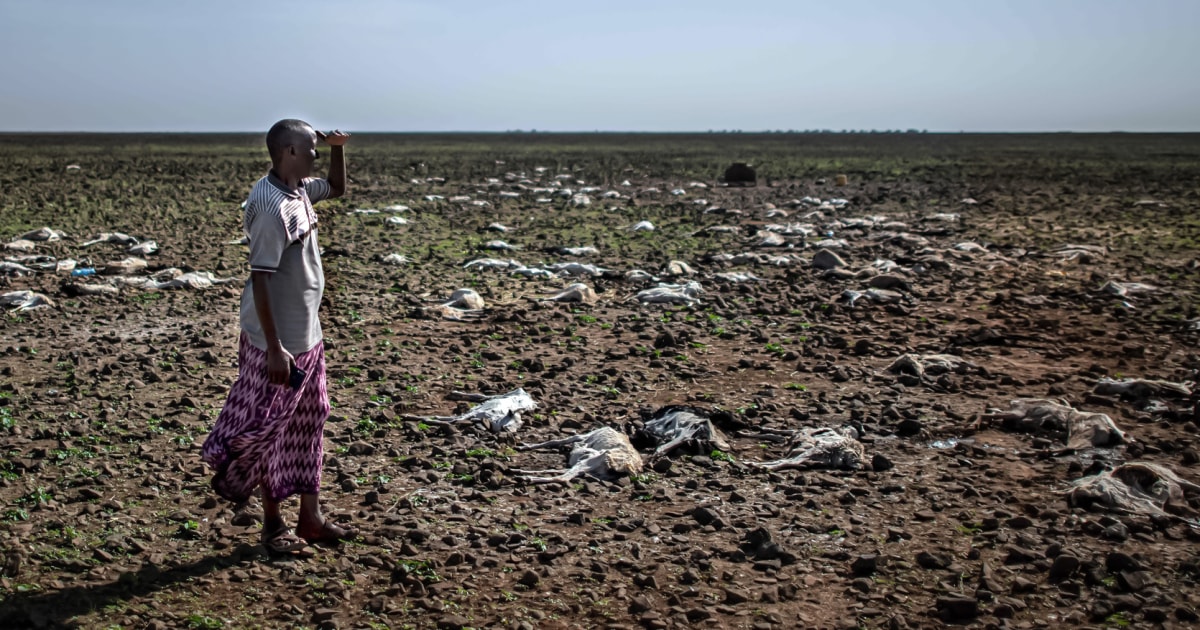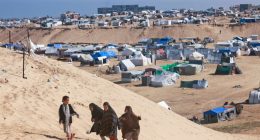
“For the global north, climate is a matter of 20 years, 30 years into the future,” Hamira Kobusingye, a youth activist from Uganda, said. “But for us in Africa, it is a today problem. We are already losing lives due to climate change and we already have refugees and people forced from their homes due to climate change.”
And the continent’s immediate future looks even bleaker.
Even at 1.5 degrees Celsius (2.7 degrees Fahrenheit) of global heating — the safer end of the Paris Agreement temperature goals and which the panel says will be breached within decades ‚ a child born in Africa in 2020 will be exposed to up to eight times as many heat waves as one born in 1960. In a world just 1.6 Celsius (2.9 Fahrenheit) hotter than pre-industrial levels, West Africa will see as many as 150 potentially deadly extreme heat days every year, the assessment shows. Tens of millions of more people will be threatened with vector borne diseases such as dengue fever even at minimal warming levels.
In a world 1.5 degrees Celsius hotter, Africa’s marine and freshwater fisheries, which provide the main source of protein for nearly a third of the population, could come under “significant threat,” with catch potentials falling as much as 41 percent.
At 1.7 degrees Celsius, the assessment warns that reduced fish harvests could leave up to 70 million people vulnerable to iron deficiency, and up to 285 million malnourished by the middle of the century.
With increasingly large numbers of people moving to coastal cities, around 110 million people will be exposed to sea level rise by 2030, and up to 245 million by 2060, the report stated.
And, depending on how rapidly the global economy decarbonizes, between 17.4 million and 85 million people in sub-Saharan Africa could be forced to flee their homes due to water stress, crop failures and rising seas, with as many as 50 million in West Africa alone.
Mohamed Adow, director of the Nairobi-based think tank Power Shift Africa, said Monday’s assessment showed how richer nations “continue to treat displacement as a security threat when it’s actually an adaptation measure by people forced from their homes due to climate consequences.”
Monday’s assessment offers a sweeping review of the choices facing communities struggling to keep pace with climate change. It shows how simple interventions such as drought-resistant farming measures and better irrigation can help withstand some of the more immediate impacts.
But the report finds that funding for adaptation in Africa is “billions” of dollars less than needed and that around half of the financial commitments to Africa reported by developed countries remain undisbursed.
“Climate impacts in Africa are getting more severe,” Adow said. “They are putting millions of lives at risk, and these people are not getting support from the international community, including the historic polluters.”
He said that rather than providing aid each time a natural disaster strikes, rich countries have a responsibility in “addressing the root cause and supporting these communities to adapt and help with the irreversible loss and damage of climate change.”
Source: | This article originally belongs to Nbcnews.com









